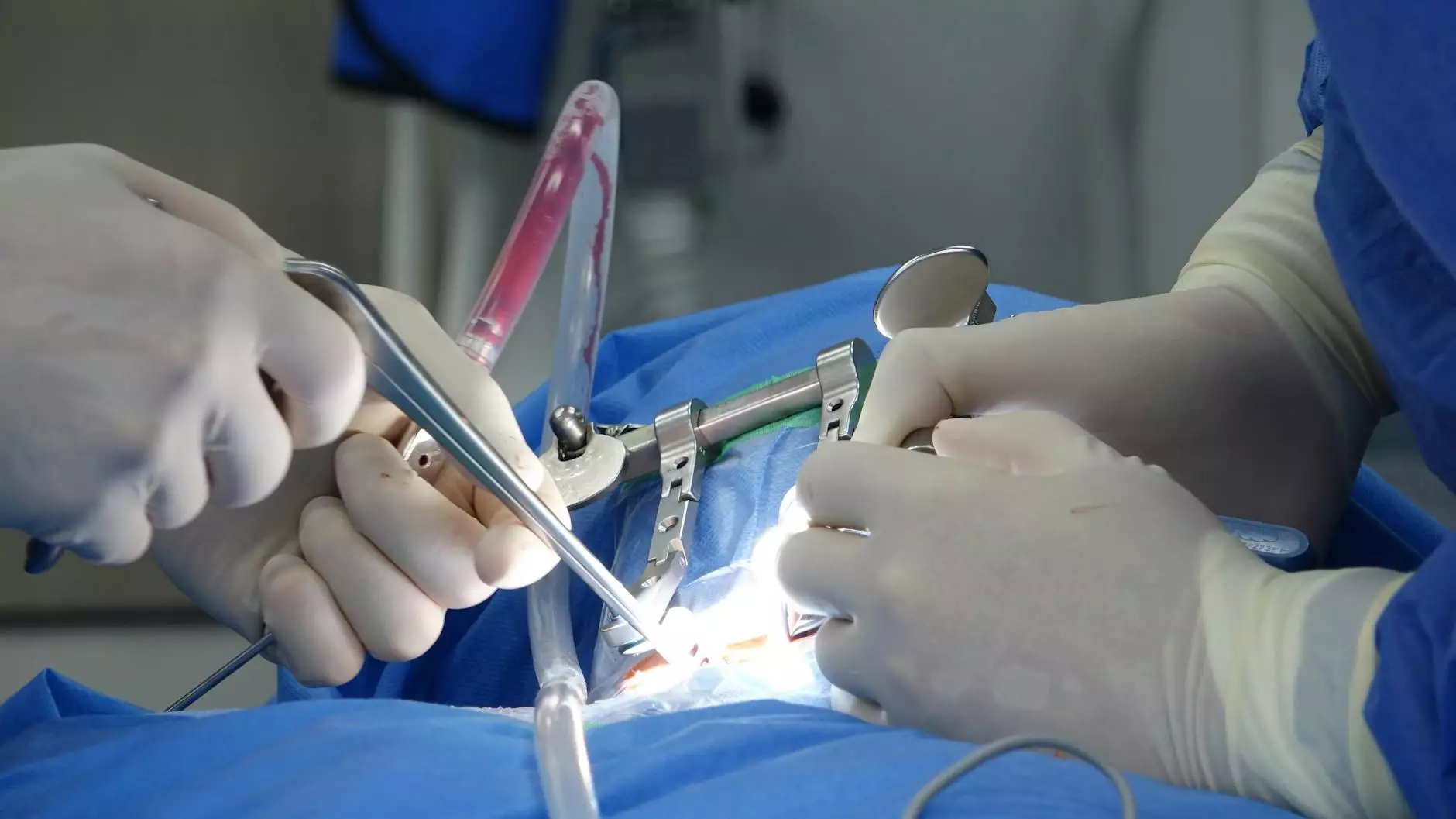Understanding Gastric Bypass: Transforming Lives through Weight Loss Surgery

Gastric bypass surgery is a popular and effective weight loss procedure that helps individuals struggling with obesity regain control of their health and improve their quality of life. In this comprehensive article, we will delve into the intricacies of gastric bypass, including its benefits, risks, expected outcomes, and the role of medical centers like Antalya Health in this transformative journey.
What is Gastric Bypass?
Gastric bypass, formally known as Roux-en-Y gastric bypass, is a surgical procedure designed to help individuals lose weight by altering the digestive system. The procedure involves creating a small pouch from the stomach and rerouting the small intestine to this pouch, effectively bypassing a significant portion of the stomach and the upper part of the small intestine.
How Gastric Bypass Works
The primary mechanism of gastric bypass involves both restriction and malabsorption:
- Restriction: The newly created stomach pouch significantly limits the amount of food that can be consumed, leading to a feeling of fullness after eating small portions.
- Malabsorption: By bypassing part of the small intestine, the body absorbs fewer calories and nutrients, contributing further to weight loss.
Who is a Good Candidate for Gastric Bypass?
Determining eligibility for gastric bypass is a critical step in the journey toward significant weight loss. Generally, candidates include:
- Individuals with a body mass index (BMI) of 40 or higher.
- Those with a BMI of 35 or higher along with obesity-related health conditions such as diabetes, hypertension, or sleep apnea.
- People who have attempted weight loss through diet and exercise without success.
- Individuals who are committed to long-term lifestyle changes.
The Benefits of Gastric Bypass Surgery
The benefits of undergoing a gastric bypass procedure extend beyond just weight loss. Here are some of the key advantages:
- Significant Weight Loss: Most patients lose 60-80% of their excess weight within the first 12-18 months post-surgery.
- Improved Health Conditions: Many patients experience remission of obesity-related conditions such as type 2 diabetes, high blood pressure, and cholesterol levels.
- Enhanced Quality of Life: Weight loss can lead to improved mobility, reduced pain, and overall better mental and emotional health.
- Long-Term Sustainability: Studies show that patients who undergo gastric bypass maintain their weight loss in the long term more successfully than those who rely solely on non-surgical weight loss methods.
Understanding the Risks Involved
Like any surgical procedure, gastric bypass comes with its own set of risks. It's essential to be aware of potential complications, including:
- Infections: As with any surgery, there is a risk of infection, especially around the incision sites.
- Bowel Obstruction: Scar tissue can form after surgery, potentially leading to blockages in the intestine.
- Nutritional Deficiencies: Due to malabsorption, patients may develop deficiencies in essential vitamins and minerals, requiring lifelong supplementation.
- Dumping Syndrome: This term refers to discomfort caused by food entering the small intestine too quickly, leading to symptoms such as nausea and diarrhea.
Preparing for Gastric Bypass Surgery
Proper preparation is crucial for a successful outcome in gastric bypass surgery. Steps include:
- Medical Evaluation: A thorough assessment by a healthcare provider, including physical examinations and psychological evaluations, to ensure readiness for surgery.
- Preoperative Diet: Patients are usually required to follow a specific dietary regimen to shrink the liver and reduce potential surgical complications.
- Support Systems: Enlisting friends, family, and support groups can provide emotional and practical assistance during the journey.
The Recovery Process
Post-surgery recovery and aftercare are vital for achieving the best results from your gastric bypass. Key phases of recovery include:
- Initial Recovery: Patients typically stay in the hospital for 2-3 days; full recovery can take 4-6 weeks.
- Gradual Diet Transition: Starting with liquids, patients gradually progress to pureed and eventually solid foods over several weeks.
- Regular Follow-ups: Ongoing appointments with healthcare providers are essential to monitor weight loss and nutritional health.
Why Choose Antalya Health for Your Gastric Bypass Journey?
Antalya Health is a premier medical center specializing in bariatric surgery, offering comprehensive care for patients considering gastric bypass. Reasons to consider Antalya Health include:
- Expert Surgeons: Our team of highly qualified and experienced surgeons specializes in weight loss procedures with a proven track record.
- State-of-the-Art Facilities: We provide modern, fully-equipped surgical suites and recovery rooms to ensure patient safety and comfort.
- Holistic Approach: At Antalya Health, we believe in treating the whole patient, not just the condition. Our approach includes preoperative counseling, nutritional guidance, and psychological support.
- Success Rates: We have high success rates regarding weight loss and improvement in comorbid conditions, emphasizing our commitment to excellent patient care.
Final Thoughts on Gastric Bypass and Your Health Journey
Undergoing gastric bypass can be a life-changing decision, offering numerous benefits to those struggling with obesity. It's essential to understand the procedure, the risks involved, and the changes required for long-term success. With the right support from a reputable medical institution like Antalya Health, you can embark on a transformative journey toward a healthier, more vibrant life.
If you're considering gastric bypass surgery, we invite you to contact us at Antalya Health today. Our dedicated team is here to answer your questions, provide personalized advice, and guide you on your path to successful weight loss and improved health.









